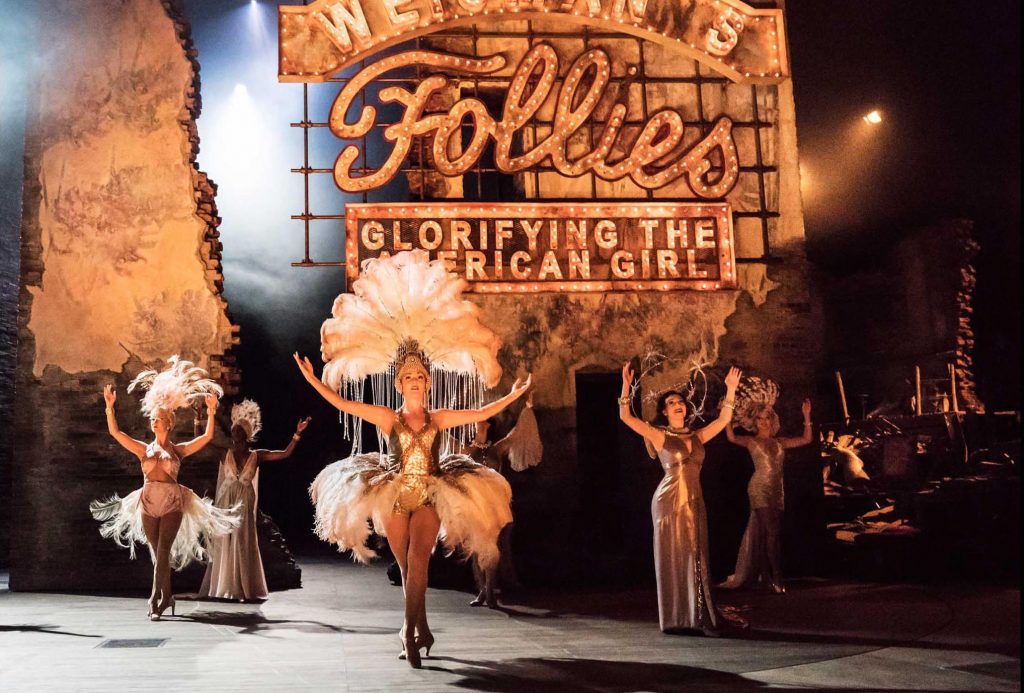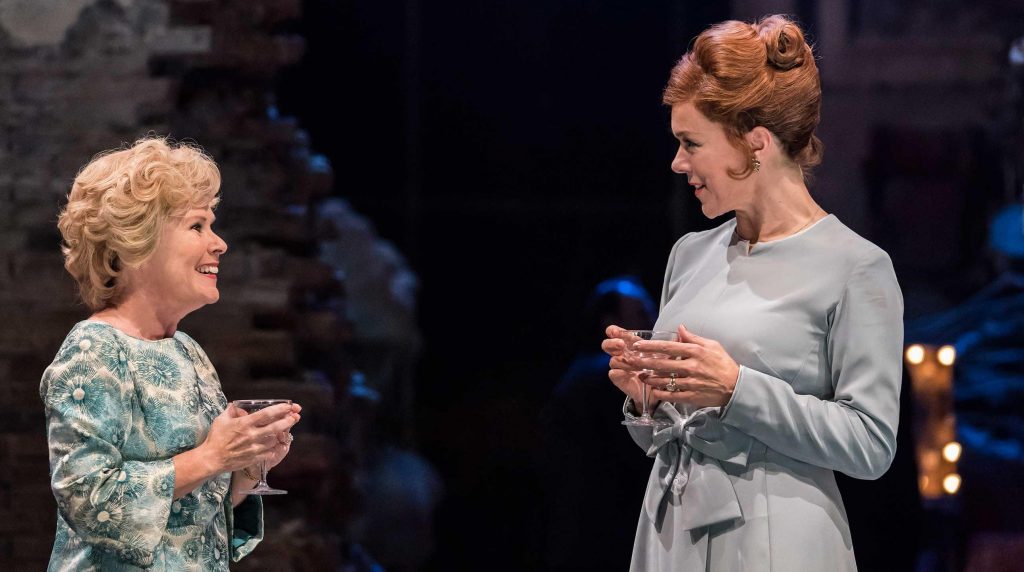Superb Cast Make Follies A Night To Treasure
[usr=4]

Stephen Sondheim’s Follies is a difficult musical. To carry it off, you need an extraordinarily good cast. Fortunately the National Theatre production has one.
Imelda Staunton is now the preeminent West End musical star, certainly for the more mature roles. Her performance as Sally consolidates her reputation by offering a perfect, beautifully acted and sung portrayal of sadness and illusion. That would be joy enough but just as perfect is Janie Dee. In the role of the cynical but brittle Phyllis, her voice, her acting and her dancing reminded me that she belongs in the highest ranks of musical performers.
Dee gets the most laughs with her songs Could I Leave You? and The Story Of Lucy And Jessie. When she finally crumbles, her performance is every bit as poignant as Staunton’s, who expresses her damaged character through the songs Don’t Look At Me, Too Many Mornings and Losing My Mind.
The musical is set in 1971 in a condemned theatre where former showgirls from Weismann’s Follies, a series of Ziegfeld-style musical reviews from the inter-War years, are gathering for a reunion. Attention centres on two of the women and their husbands. We discover that both couples have relationship problems which date back to their Follies days. This is cleverly told by showing us the ‘ghosts’ of their younger selves.
Other women reveal their illusions about their lives and relive their glory moments, again accompanied by their younger selves. More top class performances include those of Josephine Barstow, Dawn Hope and Tracie Bennett.

Janie Dee and Imelda Staunton are magnificent
Why do I say Follies is a ‘difficult’ musical? There is very little in the way of plot. The exploration of the main characters’ unhappy present relationships and past regrets is told for a substantial part of it as a series of book or character songs.
Sondheim’s music is complex and deep with emotion but, knowing that I was watching a production that runs for two hours and ten minutes without an interval, there was a moment when I wondered whether it was ever going to move along.
Just when it seemed Follies was getting nowhere, we were treated to impressive song-and-dance numbers like Who’s That Woman and a series of pastiches of pre-war Broadway musical songs, excellently choreographed by Bill Deamer. They provided some much needed fun and spectacle.
Follies comes to a climax with Loveland, a collection of Broadway parodies in which each of the main characters sings about their ‘folly’, whether of youth or maturity.
The production, directed by Dominic Cooke, does the musical proud with its 37 strong cast and 21 piece orchestra. The large Olivier stage is used well by designer Vicki Mortimer to create the crumbling theatre complete with a flickering neon sign and, when it provides the setting for the more glitzy Broadway numbers, it gives an apt visual representation of the contrast between past and present. The space is great for the song-and-dance numbers but too big for the book songs but that is the paradox of this brilliant, broken musical.
Click on this link to watch my YouTube review at One Minute Theatre Reviews or watch it below
Stephen Sondheim’s Follies runs until 3 January 2018 at the National Theatre.
A Kendall commented on my YouTube review: “The criticisms of James Goldman’s book as having little ‘plot’ are shown to be irrelevant when you have this good a production, because what it becomes is, in effect, a meditation on ageing, the death of dreams, the sense of regret, guilt and much more. That is why it draws people in so very deeply to it. And in that sense, it is to musical theatre what some of Wagner’s mature works are to opera.”
It’s a good point. Maybe we can too hung up on stories in musicals and should sometimes just enjoy the mood of the work.